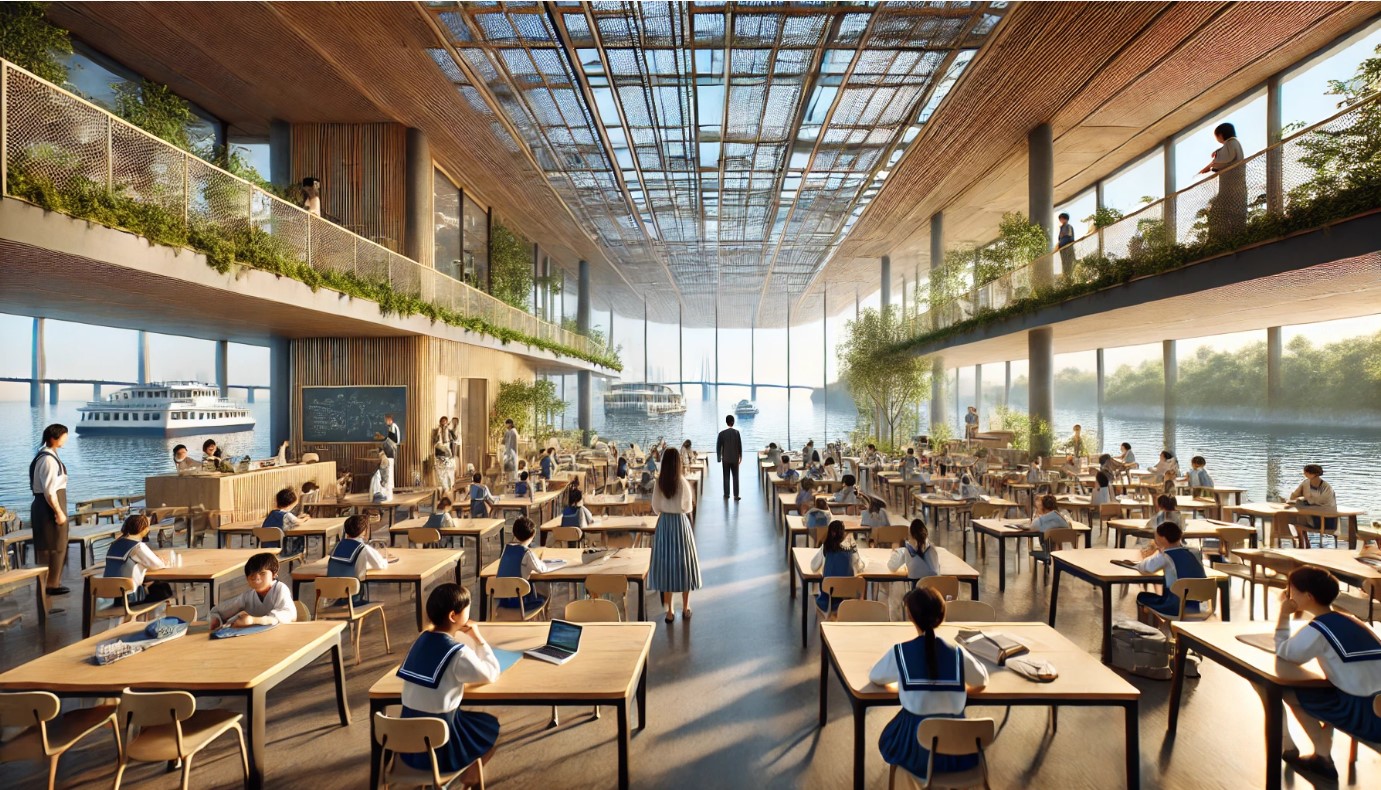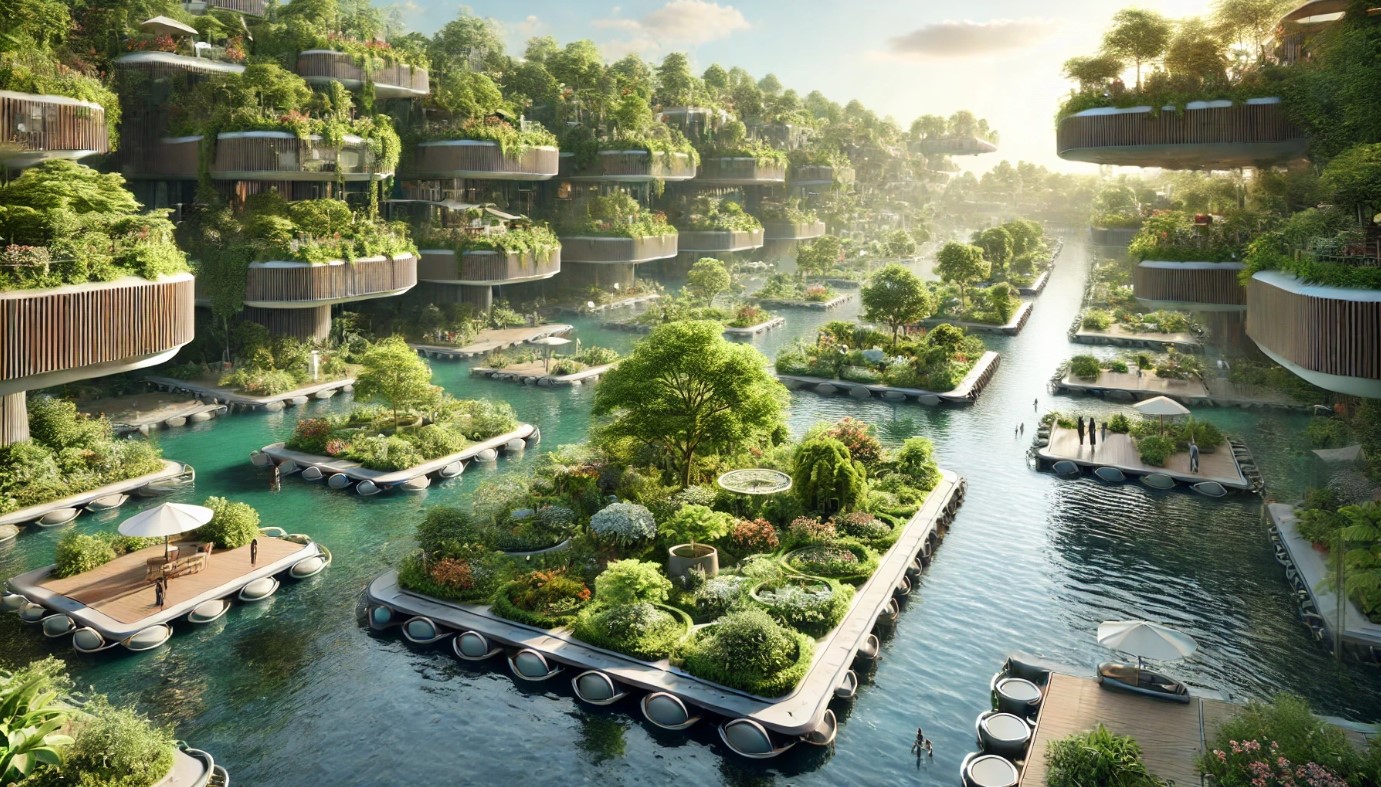The allure of the ocean has always captivated human imagination, offering a sense of adventure and tranquility unmatched by terrestrial destinations. In recent years, this fascination has given rise to a unique niche in the tourism industry: floating resorts. These innovative structures provide luxurious accommodations and immersive experiences, all while promoting sustainable tourism. Let’s explore the wonders of floating resorts and their significant contribution to sustainable travel.

The Concept of Floating Resorts
Floating resorts are essentially luxury hotels constructed on water. Unlike traditional land-based resorts, these floating sanctuaries offer guests the chance to live on the ocean, surrounded by breathtaking marine landscapes. They range from opulent houseboats to expansive floating hotels and even entire floating cities. These resorts are designed to provide all the comforts of a high-end hotel, including spacious suites, gourmet dining, spas, and a plethora of water-based activities.

Unique Experiences
One of the primary attractions of floating resorts is the unique experiences they offer. Here are some highlights:
- Immersive Marine Life Encounters: Many floating resorts are situated in pristine marine environments, offering guests unparalleled opportunities to observe marine life. Snorkeling, scuba diving, and underwater observatories allow visitors to witness the vibrant underwater ecosystems up close

- Water-Based Activities: From kayaking and paddleboarding to jet skiing and deep-sea fishing, floating resorts provide a wide range of water sports. The direct access to the ocean makes these activities easily accessible and more enjoyable.

- Stunning Views: Floating resorts often offer 360-degree views of the ocean, providing stunning sunrises and sunsets. The serene sound of waves and the endless horizon create a peaceful and rejuvenating atmosphere

- Eco-Friendly Luxury: Many floating resorts are designed with sustainability in mind. They incorporate eco-friendly technologies such as solar power, desalination systems, and waste recycling to minimize their environmental impact.

Contribution to Sustainable Tourism
Floating resorts are not just about luxury and unique experiences; they also play a crucial role in promoting sustainable tourism. Here’s how:
- Minimal Land Impact: By being situated on water, floating resorts reduce the need for large-scale land development, preserving natural habitats and landscapes. This is particularly important in ecologically sensitive areas where traditional construction could cause significant harm.
- Renewable Energy Use: Many floating resorts utilize renewable energy sources, such as solar panels and wind turbines, to power their operations. This reduces their carbon footprint and reliance on fossil fuels.
- Water Conservation: Advanced desalination systems enable floating resorts to convert seawater into freshwater, ensuring a sustainable water supply without depleting local freshwater resources.
- Waste Management: Floating resorts often employ sophisticated waste management systems to treat and recycle waste, preventing pollution of the surrounding marine environment.
- Promotion of Marine Conservation: By offering guests educational programs and activities centered around marine conservation, floating resorts raise awareness about the importance of protecting our oceans. This fosters a sense of responsibility and encourages sustainable behaviors among tourists

Case Studies: Exemplary Floating Resorts
- The Manta Resort, Zanzibar: Known for its underwater room, The Manta Resort offers guests the unique experience of sleeping below sea level, surrounded by marine life. The resort emphasizes sustainability through solar power and water recycling systems.

- Punta Caracol Acqua Lodge, Panama: This eco-friendly resort features overwater bungalows built with sustainable materials. It relies on solar energy and promotes conservation of the surrounding coral reefs.

- Arctic Bath, Sweden: Situated on the Lule River, this floating spa hotel is designed to have minimal environmental impact. It uses local, sustainable materials and operates on renewable energy.

The Future of Floating Resorts
As the demand for sustainable and unique travel experiences grows, the popularity of floating resorts is likely to increase. Innovations in green technology and sustainable construction will further enhance their appeal, making them an integral part of the tourism industry’s efforts to combat climate change and promote environmental stewardship.
At V-Marine, we are at the forefront of this movement, bringing the vision of floating resorts and residential properties to reality. Our products, including luxury houseboats and custom-designed floating structures, are aligned with the principles of sustainable tourism. We are committed to creating marine living spaces that offer both comfort and sustainability, ensuring that future generations can enjoy the beauty of our oceans without compromising the health of our planet.
Floating resorts represent a harmonious blend of luxury, adventure, and sustainability. They offer travelers a chance to connect with the ocean in an unprecedented way while contributing to the preservation of our planet’s precious marine ecosystems. Whether you are seeking a peaceful retreat or an adventurous getaway, floating resorts promise an unforgettable experience that aligns with the principles of sustainable tourism.





